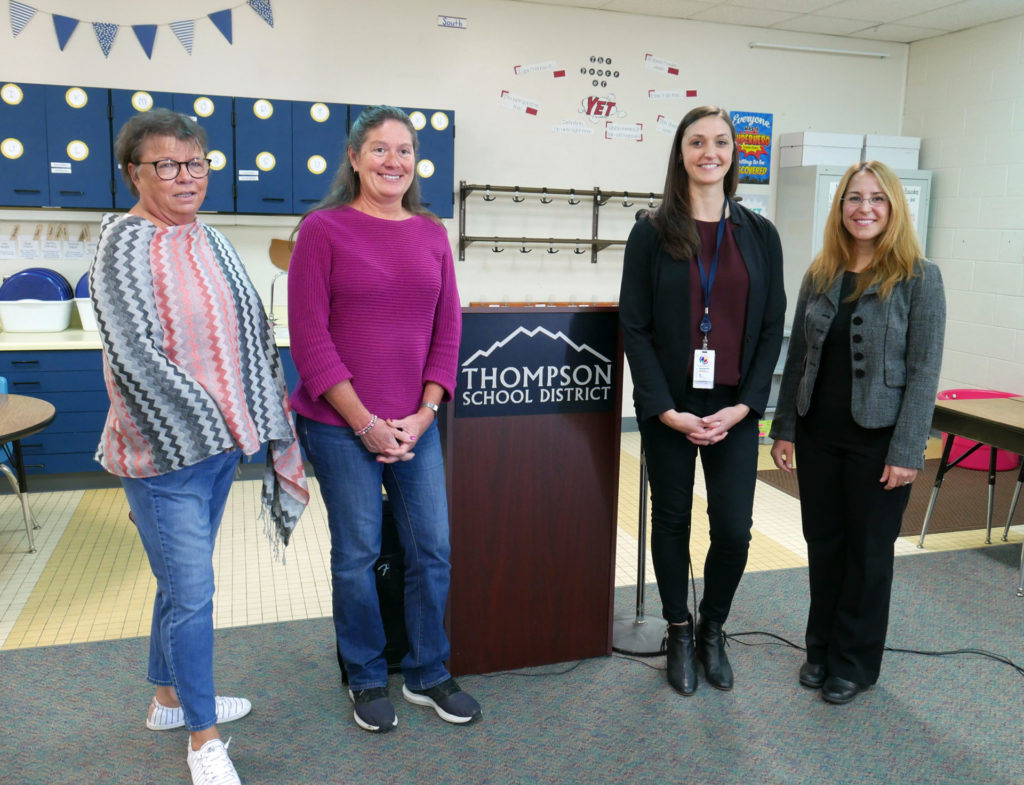
The Environmental Protection Agency called Thompson School District a “shining example” and commended CSU Department of Civil and Environmental Engineering Professor Pinar Omur-Ozbek and her students Oct. 11 during a press conference at Sarah Milner Elementary School in Loveland. The district’s drinking water testing program was the only one recognized in the EPA’s six-state Region 8, headquartered in Denver, and coincided with the EPA announcement of its proposed updates to lead and copper rules to better protect children and at-risk communities.
EPA Region 8 Administrator Greg Sopkin said Omur-Ozbek and her students “took a lot of pride in their work and a lot of care” in collecting water samples during the two-year project. Currently there is no requirement for public schools to test drinking water for lead. Thompson School District (TSD) applied for grants from the Colorado Department of Public Health and Environment to test for lead at 34 schools, and the City of Loveland analyzed around 3,000 samples.
“My students were at schools as early as 3 a.m. to make sure all sampling was done before the day started,” Omur-Ozbek said.
Timing of the water sampling was crucial. In order to get optimal results, the water fixtures had to be dry for 8-18 hours before collection. In public schools used for all manner of events outside of classes, scheduling the sampling was no easy task, but the district, Omur-Ozbek and her students, and the Loveland Water Treatment Plant worked together to test 2,645 fixtures.
“We did find that there was high or concerning levels of lead at some taps of some schools,” Omur-Ozbek said. “The fixtures were replaced and retesting was done to ensure mitigation of the problem.”
TSD Director of Operations Kristen Battige, who initiated the project, said 3.9 percent of the fixtures exceeded the district’s lead standards, and they immediately were fixed or replaced. The district’s limit is 15 parts per billion, consistent with the EPA’s recommended action level.
Sopkin said the EPA’s goal is for the proactive testing and remediation done by TSD to become the standard in all schools across the U.S. The EPA’s regulations concerning copper and lead in drinking water have not been updated in 30 years, he said. The updates proposed Oct. 11 include mandated testing of drinking water in schools and childcare facilities.
“Lead is a harmful heavy metal that impairs development of young kids, and exposure through ingestion makes it even more worrisome,” Omur-Ozbek said. “It may also lead to kidney and brain damage.”
Approximately 16,000 students attend Thompson schools, and the district is the largest employer in the Loveland and Berthoud communities.